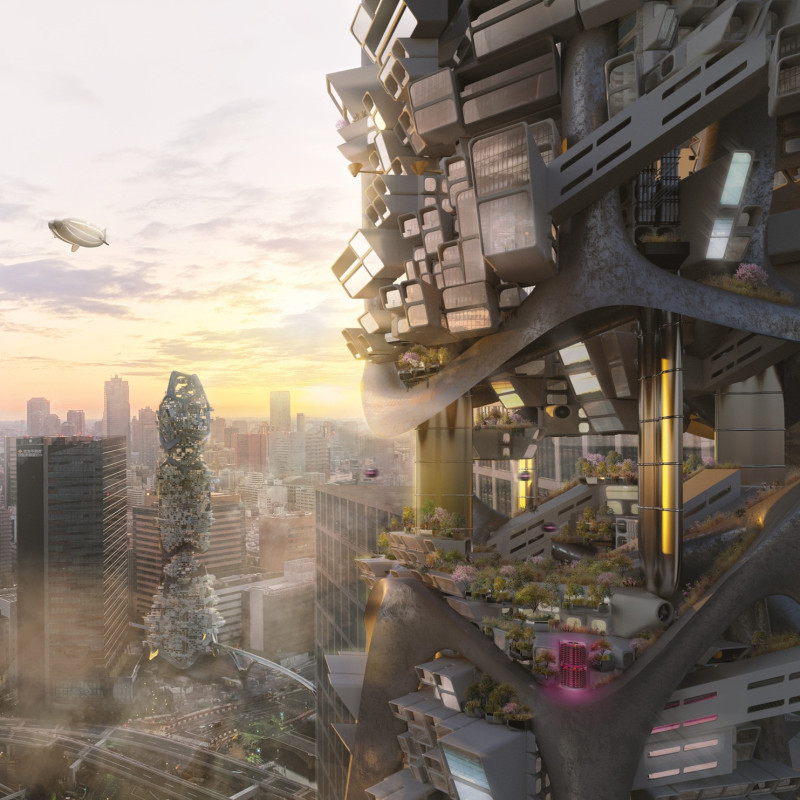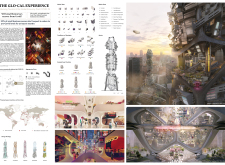5 key facts about this project
The Glo-Cal Experience is a modular system designed to respond to the needs of tourism and local economies in the wake of COVID-19. Set in urban environments, it allows different countries to showcase their unique cultures. The structure features a rotating design that facilitates cultural exchange. Its main purpose is to create an engaging space for both visitors and local communities, providing opportunities for interaction and learning.
Modular Design
The design utilizes a modular approach, which includes plug-in units for various functions. These spaces can accommodate interactive screens, immersive environments, and retail shops. This adaptability meets the changing demands of visitors and aligns with seasonal interests. Compliance with local building requirements is an essential feature of this flexible approach.
Sustainability Features
Sustainability is a central theme in the Glo-Cal Experience. The structure incorporates environmental systems such as solar power modules and rainwater harvesting. Vertical farms and biofuel energy plants support ecological goals. These elements contribute to reducing the project's overall carbon footprint, demonstrating a commitment to environmental responsibility.
Cultural Representation
Community involvement is another key aspect. Local businesses from participating countries occupy spaces within the modules. They offer products and services that reflect their cultural backgrounds. This integration supports local economies and provides visitors with authentic cultural experiences, enriching their time spent in the space.
Geographical Adaptability
The design is mindful of geographical context. It can adapt to various climates, including both tropical and mountainous environments. This consideration ensures that each modular unit can be tailored based on local conditions. The result is a structure that is functional, relevant, and respectful of its surroundings.
The Glo-Cal Experience culminates in a blend of spaces that encourage movement and exploration of diverse cultural narratives. Visitors are engaged meaningfully, immersing themselves in educational experiences that broaden their understanding of global cultures.



















































